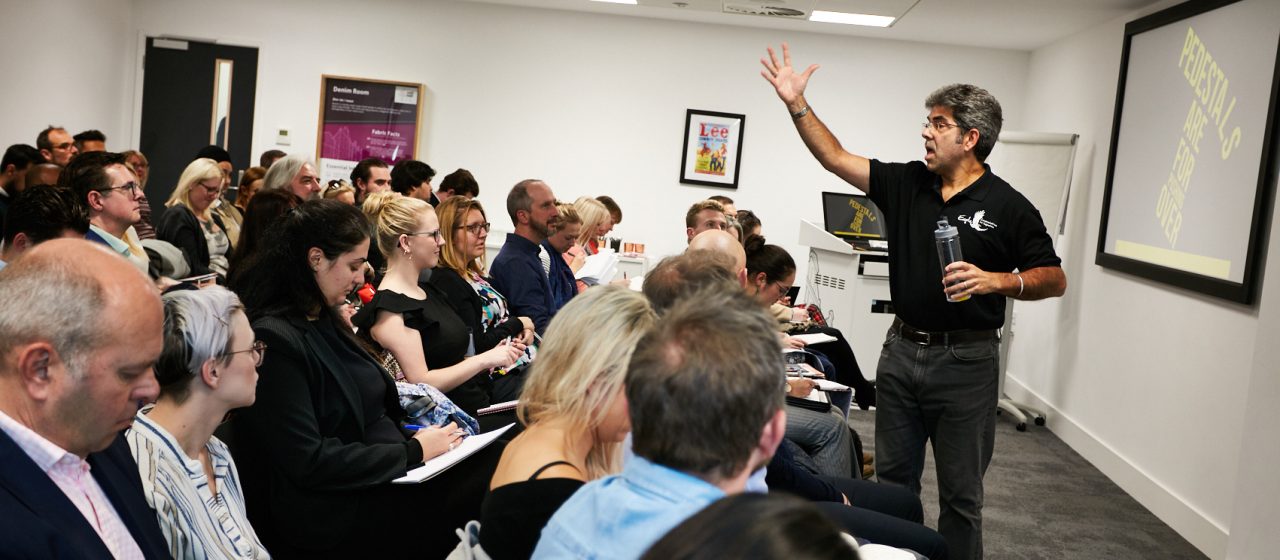
Do Motivational Speakers Really Motivate?
by Duncan Lewis, Dec 10
I recently posted something on social media that posed the question whether motivational speakers actually ‘walk the talk’? As this caused a fair amount of reaction, I thought it was a discussion worthy of some elaboration. I should add, as someone who delivers motivational talks, I am not trying to do myself out of work here!
However, having seen several high profile and so-called ‘gurus’ deliver motivational talks – live and recorded – and read numerous books on the subject of motivation, I question when people declare themselves ‘motivated’ and wonder what does this really mean? Further, what really exasperates me is when these speakers and authors declare their methods are proven: when one explicitly follows their formula, intense drive and immediate success will result in leading ultimately to massive wealth!
These dubious claims are usually substantiated by describing a record of personal achievement from a highly charismatic and knowledgeable individual who has succeeded in one field and believes their experience is sufficient to motivate people in diverse disciplines, careers and variety of life situations. Upon examining these claims in detail, we usually find little knowledge of actual motivational science or any tangible evidence to support the speaker or author’s assertions. Most of the ‘secrets’ revolve around speaking, thinking, and acting like this person: ‘do as I do and you too will succeed’ seems to be their mantra and motivational wisdom. Unfortunately, these people fail to realise that motivation cannot be mandated using a words in a speech or book alone.
There are several problems with motivation given by others. First, the ‘expert’ is operating under the premise that a strategy will work for you because it worked for them. Many of these motivational ‘clairvoyants’ are highly successful in their own careers, but rely almost exclusively on private, untestable approaches that may not necessarily apply to others in similar situations. There is no accurate way to prove the superiority or even the efficacy of their methods. If you see or hear any speaker suggest their methods are ‘proven’ – ask them to prove it!
There is no accurate way to prove the superiority or even the efficacy of their methods. If you see or hear any speaker suggest their methods are ‘proven’ – ask them to prove it!
Secondly, motivation is constantly in flux based on the task at hand, the performer’s beliefs and the venue conditions. Beyond that, motives rapidly evolve owing to the progress or failure of a task. In other words, motivational solutions will change based on the person and problem.
Thirdly, personal motivation cannot be sanctioned by others, unless the person who is trying to motivate you has the same unique experiences, beliefs, and opportunities as you – a highly unlikely scenario. Further, people who follow a prescriptive formula from others lose motivational power and the ability to think independently. Indeed, these types of strategies can often wind up demotivating individuals because promised results often do not follow, leading to frustration and negative introspection. Moreover, these feelings often promote greater reliance on the ‘expert’ in order to feel better.
Finally, to all motivational speakers and authors out there – a warning! Ensure that your message(s) is clear and specific and avoid generalisations. Take care to evade interpretation for hidden meanings. The individual must perceive your message as relevant to them. Ensure that the information you are imparting is credible, trustworthy and authentic or your audience will be left feeling de-motivated by what you are saying; the opposite emotion you intended.






